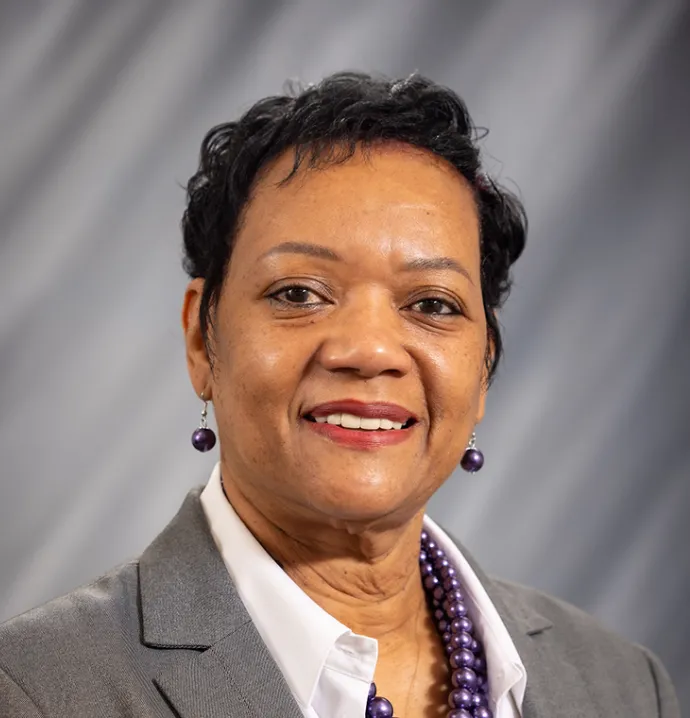Preparing for a (possibly) uncertain Election Day
Preparing for a (possibly) uncertain Election Day
The election of 2020 is shaping up to be one unlike any other. With record early voting turnout and increases in absentee ballots due to the pandemic, it’s uncertain whether Americans will know who their next president will be when they wake up on Nov. 4. University of Northern Iowa political science professors Donna Hoffman and Christopher Larimer have been studying elections for years and are frequently sought out by the media for their expertise. In this conversation, they discuss how to prepare for an unprecedented election and what they’ll be watching on election night.
How likely are we to know the results on Election Night? What might happen if we don’t?
Larimer: I feel somewhat confident that we'll know what's happening in Black Hawk County and statewide in Iowa by the end of the night or very early into the morning. But those who administer the elections differ on a state-by-state basis. So, as you move outside of the county into Iowa and then beyond, it gets a little more uncertain.
Hoffman: If we don't know election results on election night, that is not unusual. It is a little bit unusual when it comes to the presidency. But I would point out that in 2000, it took five weeks to resolve that with litigation and with court cases, and nobody rioted in the streets. And it got resolved not to everyone's satisfaction, necessarily, but it got resolved. And we had a peaceful transition of power. And that's what we expect in America, because that's historically what has happened.
There's always error in election returns. It's just when you have a really, really close election, then that error may make a difference. As Americans, we want instant gratification, we want to know who the President is going to be. And so it's important for citizens to put the election in proper perspective. Because just because results might not be known on election night is not actually all that unusual.
What do you think the huge early voting turnout will mean? Is that a sign that things may get resolved on election night? What are your expectations?
Hoffman: In terms of the early vote, because this election is so unusual, it’s hard to take anything away from that. We might be tempted to say that indicates enthusiasm, but it may not if all of those people previously were going to vote on Election Day. So, in a pandemic, it's very hard to figure out what that means, because we've never voted in this kind of environment before. Also, if we don't know election results on election night, that is not unusual. If states have election disputes, they have different processes to resolve them, and they must be resolved by Dec. 8 so the Electoral College can vote on Dec. 14. It's important for citizens to put the election in proper perspective. Because not knowing the results on election eve is not all that unusual in a lot of different contexts.
Some states, such as Pennsylvania and Michigan, don’t start counting absentee ballots until Election Day. How do you see that playing out? Does that encourage court challenges?
Larimer: It is hard to know how it will play out because it’s on a state-by-state basis. Iowa was able to get an exemption to start opening absentee ballots early, so election officials are anticipating they will have results by 9 or 10 p.m., or maybe a little later on election night. But every state has a different process for how they count absentee ballots. So, yes, that could potentially be a source for lawsuits, it’s just hard to know where those lawsuits could come from.
What are the states you will be watching closely on election night?
Larimer: We’ll watch most of the battleground states, including Iowa. There are also other races in Maine, Colorado and North Carolina with potential to flip control of the U.S. Senate. And then, obviously, Florida, Michigan, Wisconsin and Pennsylvania.
Hoffman: I would add Texas in there, because Texas is polling in a really interesting fashion. I don’t think Texas will actually turn blue, but it might be really interesting. The state legislative races are interesting too, because there is some evidence that Democrats could take control of one the state’s legislative chambers. That’s important because in 2020 you have census numbers coming in, and whoever controls the state legislature there will be drawing district lines that typically stay in place for a decade.
In terms of polling, many are under the impression that the polls in 2016 were wrong. Do you agree with that? Or did people just misinterpret them?
 Hoffman: At the national level, the polls were actually correct. They predicted Hillary Clinton would win by about 2%. And she did in fact, win the popular vote by about 2%. Because what the national general election polling measures is the popular vote, not the Electoral College. Where you had some issues was with state polls, and not all states are polled equally. And also, some of the key states to Trump’s electoral victory were Pennsylvania, Wisconsin and Michigan, he won them by less 80,000 votes combined, which was within the margin of errors for those state’s polls. And pollsters continually adjust their models, and they do a decent job predicting what the electorate will look like. So, with the good polls, you can put a little weight on what they’re saying, but there’s always the margin of error too.
Hoffman: At the national level, the polls were actually correct. They predicted Hillary Clinton would win by about 2%. And she did in fact, win the popular vote by about 2%. Because what the national general election polling measures is the popular vote, not the Electoral College. Where you had some issues was with state polls, and not all states are polled equally. And also, some of the key states to Trump’s electoral victory were Pennsylvania, Wisconsin and Michigan, he won them by less 80,000 votes combined, which was within the margin of errors for those state’s polls. And pollsters continually adjust their models, and they do a decent job predicting what the electorate will look like. So, with the good polls, you can put a little weight on what they’re saying, but there’s always the margin of error too.
Do you have any advice for voters?
Larimer: Just go vote, and don’t worry about the post office losing your ballot or that your vote won’t be counted. That’s really concerning how many questions there are about that this cycle. Please vote; it will be counted.
Hoffman: I would also say: Stay off social media. Let cooler heads prevail. Social media, in its brevity, can really play on people's emotions rather than their rationality. And that's not what we need in an election where the victor is frequently not known on election night.




